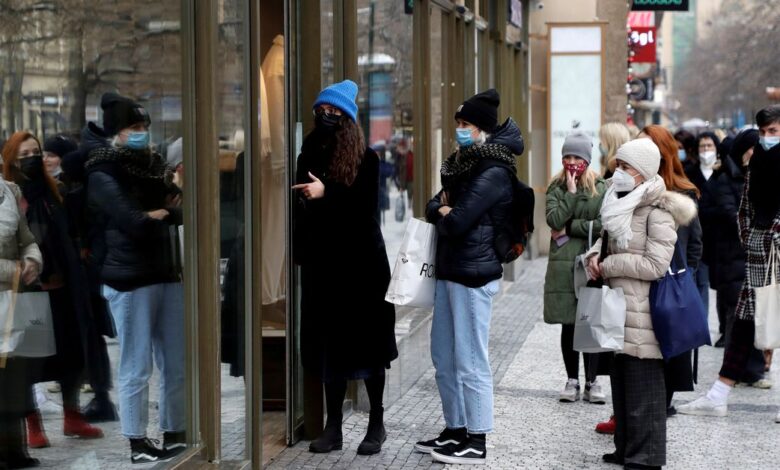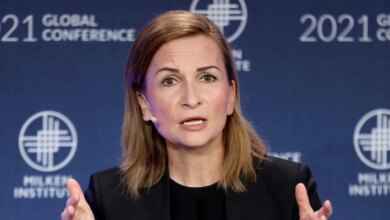Analysis: Energy costs add to emerging central banks’ inflation headache

LONDON, Oct 4 (Reuters) – Greater vitality costs are fanning inflation in a number of rising markets, testing the resolve of their central banks and risking stymieing development in Hungary, Poland and the Czech Republic and extra foreign money weak spot in Turkey, analysts say.
In a daring response to the value pressures, the Czech Nationwide Financial institution (CNB) on Thursday raised its most important rate of interest by 75 foundation factors, its greatest hike since 1997. It cited rising vitality costs in addition to supply-chain disruptions and home elements like larger prices in owner-occupied housing and companies.
The nation’s prime minister mentioned the hike would harm the economic system, illustrating the dilemma rising central banks face as they attempt to head off inflation, already working above goal ranges, whereas sustaining fragile financial recoveries from the COVID-19 pandemic.
Benchmark European gasoline costs have surged greater than 300% this 12 months on account of elements together with low storage ranges, outages and excessive demand as economies rebound, dragging up wholesale electrical energy prices.
The Czech Republic, Poland, Hungary and Romania had been extra uncovered to the rise than the remainder of the European Union as a result of vitality and utilities account for a comparatively massive share of their client worth index baskets whereas their electrical energy provides are extra uncovered to carbon-intensive sources, Goldman Sachs analysts mentioned.
Turkey has been clobbered too, with pure gasoline costs for industrial use and electrical energy manufacturing rising by 15% final month.
Shopper costs had usually grown by extra in nations the place the financial rebound had been quicker between the third quarter of 2020 and the second quarter of 2021, mentioned S&P International Rankings lead economist Tatiana Lysenko, highlighting Poland, Hungary, Russia and Brazil.
“Inflationary pressures in rising European economies are proving to be extra persistent than we anticipated,” mentioned Lysenko.
“EMEA central banks will proceed to navigate a sophisticated panorama, in search of a steadiness between supporting the restoration and anchoring inflation expectations in an atmosphere the place supply-side pressures might last more than beforehand anticipated.”
With larger world vitality and meals costs displaying few indicators of easing and the Czech Republic, Hungary and others additionally dealing with tighter labour markets, inflation pressures ought to linger.
Goldman Sachs forecasts inflation for the 12 months at 4.5% in Romania, 3.9% within the Czech Republic and three.7% in Poland.
The Czech central financial institution mentioned extra charge rises would comply with Thursday’s massive hike because it aimed to forestall folks and corporations from getting used to inflation overshooting its 2% goal.
Hungary plans to tighten coverage extra too, with base rate of interest hikes of 15 foundation factors within the coming months, deputy central financial institution governor Barnabas Virag mentioned on Friday.
Virag’s feedback and the Czech hike gave a lift to each nation’s currencies, with the Czech crown hitting one-month highs in opposition to the euro.
Poland may additionally be tempted to ship an sooner than anticipated hike, say analysts.
Citi analysts mentioned they count on Poland to ship its first charge hike in March or April 2022, however they added that faster-than-expected hikes had been attainable if the financial institution turned extra assured in regards to the power of financial development.
Turkey is more likely to show an exception, nevertheless. President Tayyip Erdogan’s need for stimulus usually trumps an orthodox method to financial coverage.
Regardless of inflation working above goal at 19.25%, the central financial institution final month slashed its coverage charge by 100 foundation factors to 18%.
“Turkey is most susceptible to larger vitality prices as they’ve traditionally precipitated its steadiness of funds to deteriorate as import prices have elevated,” mentioned David Rees, Schroders senior rising markets economist.
“The lira has come below stress after the current shock charge reduce and should proceed to sell-off if vitality costs rise additional.”
The lira has slumped to report lows lately, reawakening recollections of a 2018 foreign money disaster and eroding the earnings of Turks.
Reporting by Tom Arnold; Modifying by Hugh Lawson
:





